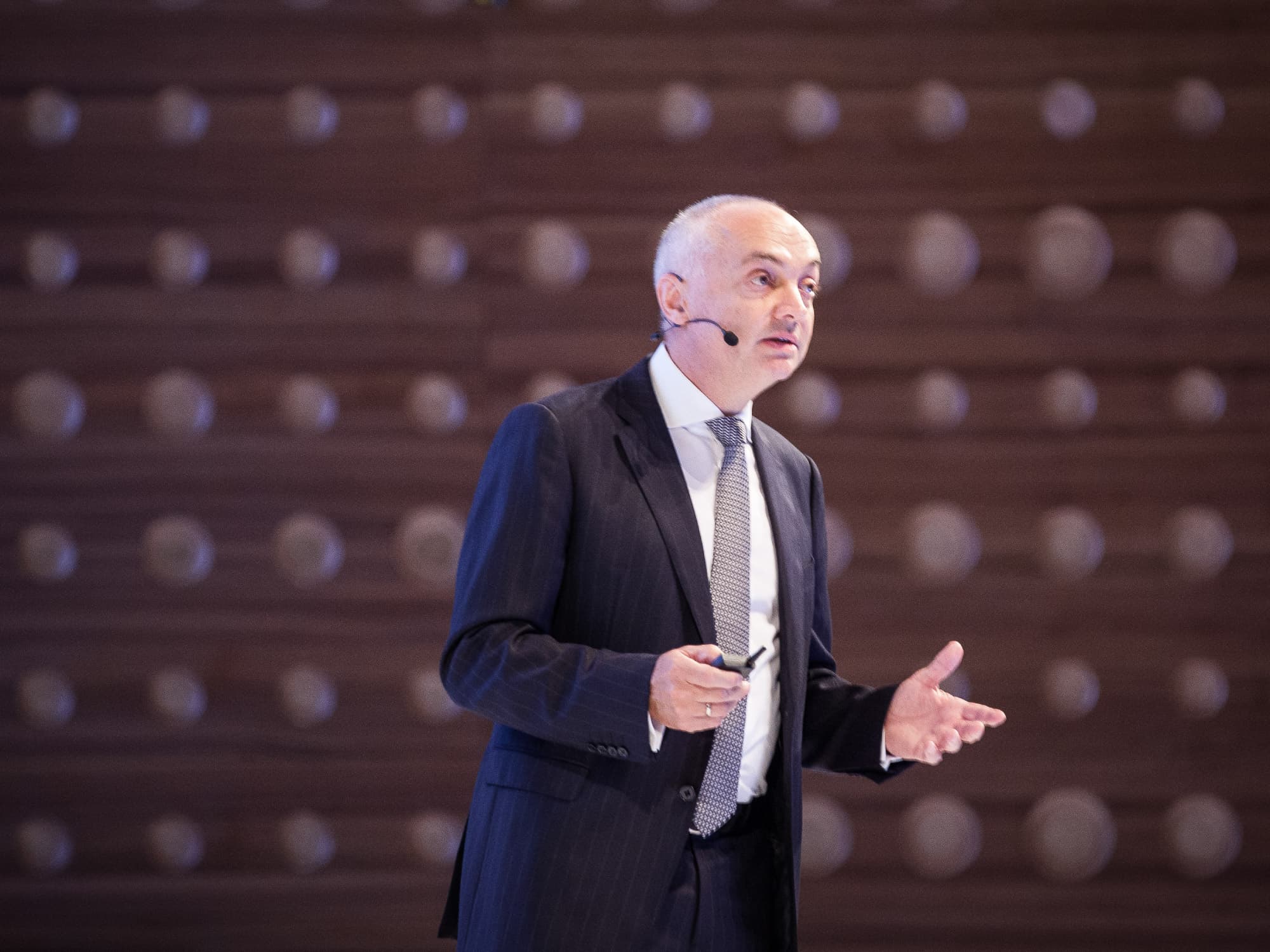Introduction
Newly launched research from imec - Ghent University shows that almost everyone in Flanders has one or more devices enabling them to be constantly online, wherever they go: less than 7% indicate that they have no smart devices in their homes. On the downside of things, more than one in three Flemish citizens is heavily dependent on their smartphone and/or social media. And 13% claims to suffer from ‘digibesity’ (depending on both, and often reporting a significant impact on their daily activities – such as time loss at work / school). We asked Lieven De Marez (imec - mict - Ghent University), the author of imec’s annual digimeter report, to shed some light on how the 'homo digitalis' uses digital media. Moreover, his colleague Tony van Rooij (imec - mict - Ghent University) explains how the use of digital media affects us, and how we can deal with this.
Digital is the ‘new normal’…
“The annual digimeter report is an initiative of imec.livinglabs and its researchers in the department of Media, Innovation and Communication Technologies (mict) from imec - Ghent University. Each year, it reports on media usage in Flanders. A first remarkable outcome of the new digimeter is that almost everyone in Flanders now has the capability to be online whenever, wherever. Less than 7% say they have no smart, connected devices in their homes,” says Lieven De Marez.
Meanwhile, the use of social media is still on the up. Eight out of ten Flemish people use at least one social media channel every month (as opposed to 72% in 2015), 26% use as many as four each month. Facebook is still at number one (69% use Facebook monthly).
And those figures are pretty similar to what is happening in other countries: a study from the Pew Research Center, for example, shows that – in 2016 – approximately seven in ten American adults used at least one social media channel, with Facebook being the biggest player: about 68% of the adult population uses it (and over 90% of them do this at least on a weekly basis).
Lieven De Marez: “For many people – in Flanders and beyond – digital is the new normal. But that makes us raise the question: do we actually use all these smart services and devices in an intelligent way?”
… but the ‘digibesity’ trend is worsening
When looking at how we deal with this new digital reality, there is still quite some work to do: in line with the growing number of smartphones and the increasing use of social media, the digibesity trend (characterized by an overconsumption of digital media) is also continuing apace.
“In the 15 to 39-year-old category, for example, one in three digimeter respondents indicate that they are dependent on their smartphone; and four in ten feel dependent on social media. One quarter are dependent on both, and suffer from digibesity; across all age categories, digibesity impacts 13% of Flemish people,” says Lieven De Marez.
“Foreign studies as well show that many people respond positively to the question whether they are addicted to their smartphone or social media,” adds Tony van Rooij. “But obviously, lower numbers of ‘problem users’ will be recorded when factors are taken into account such as a lack of sleep or not doing homework due to smartphone usage. In that case, the number of problem users is more likely to fluctuate around 3 to 5%. And if you zoom in on serious performance problems caused by digital media usage, you will end up with numbers well below 1%. In other words: not all digimeter respondents claiming to suffer from digibesity should be considered actual patients.”
According to Tony van Rooij, the digimeter results are absolutely no reason to suddenly unleash a kind of 'moral panic': “Revoking children’s access to the internet or to digital devices, for example, is not a good idea: it hinders them in the development of digital skills they need badly. Which doesn’t mean, however, that parents shouldn’t keep an eye out. It's all about finding a healthy balance...”
The remedy: skills and self-regulation
Obviously, the use of digital media has an impact on us. Smart devices and services make good use of a number of mechanisms – such as push notifications – to stimulate the creation of habits.
“These push messages train us to respond to impulses – and this has both a physical and a psychological impact. Incoming messages disturb our concentration, and a lot of willpower is required to not directly have a look at them,” Tony van Rooij says.
“On the other hand, no causal link has been established yet between techno-stress and burn-outs. High-quality and open international research indicates that media usage does not necessarily have a linear relationship with the occurrence of mental problems. It's just a matter of avoiding any extremes and teaching people to consciously deal with the technology that surrounds us. After all, let’s not forget that most of the time this is not an issue. For us, the digital revolution might have been a world innovation, but for children – for example – technology simply is part of their lives. For them, it is as common as using a car which comes with all its advantages and disadvantages.”
On the upside of things, Lieven De Marez and his team have noticed a form of self-regulation emerging.
“Teenagers, in particular, are already displaying far more awareness of these issues – for example by cutting themselves off from the digital tsunami during exam periods (in the library),” he says. “And people in their twenties and thirties as well – who have proven to more likely have a problematic relationship with digital media – have started to actively face their ‘digital demons’.”
“They actually need to regain control of digital technology. However, they too are starting to adapt their behavior, for example by putting away their smartphones during meetings and conversations or turning off push messages,” he concludes.
Want to know more?
The digimeter report is an initiative of imec.livinglabs and its researchers in the department of Media, Innovation & Communication Technologies (mict) of imec - Ghent University. The digimeter is produced based on self-reported data from an annual survey that is presented to a – statistically representative – group of more than 2,100 respondents in Flanders (aged 15 years and older). The data are used in the context of independent scientific research, and are therefore not shared for commercial purposes. More info: www.imec.be/digimeter

Professor Lieven De Marez is research director at the research group for Media, Innovation and Communication Technologies (imec - Ghent University). Lieven obtained a Master in communication sciences (1999) and marketing (2000) and wrote a PhD on the ‘Diffusion of ICT-innovations: more accurate user insight for better introduction strategies’. His main expertise is on the development of ‘segmentation forecast’ tools for prior-to-launch adoption potential forecasts for new media and ICT-innovations. As head of imec - mict - UGent and manager of imec.livinglabs’ media activities, he continuously seeks to explore new methodologies. Main goals are understanding emerging media usage patterns and the impact of new media & ICT and making media innovation more user-centric. At the UGent department of communication studies he founded and coordinates the Master ‘New media & society’.

Tony van Rooij holds a PhD in Psychiatry/Clinical Psychology from the Erasmus University Medical Centre/IVO Addiction Research Institute in Rotterdam (2011). His PhD dealt with excessive use of video games and was titled ‘Online Video Game Addiction: Exploring a New Phenomenon’. In his current research projects at imec - mict - UGent, he focuses on the use of video games for health, responsible online gambling, and parental control of children’s gaming behavior.
Published on:
1 February 2017













